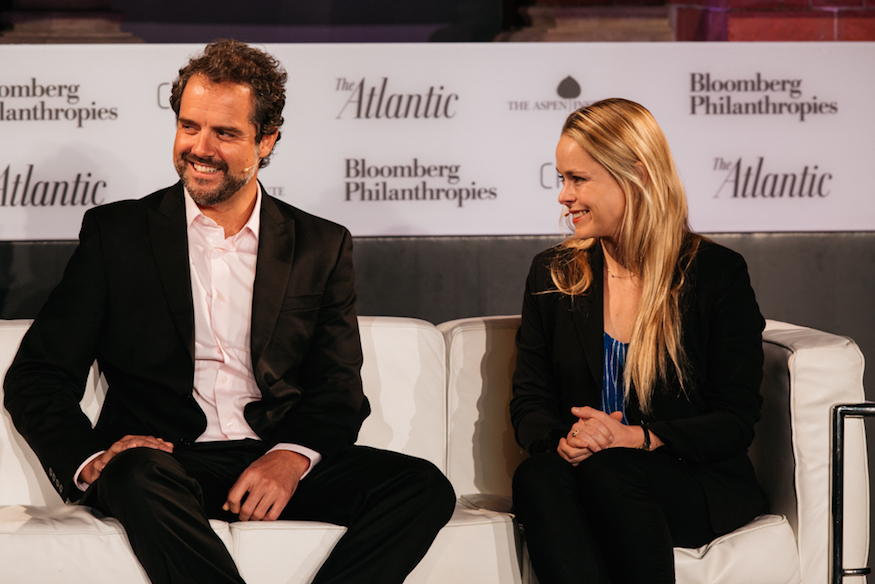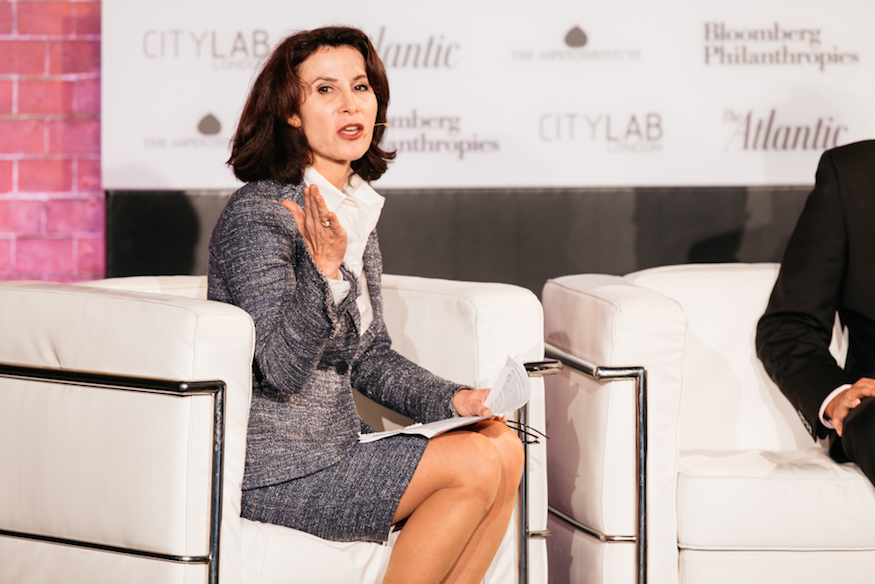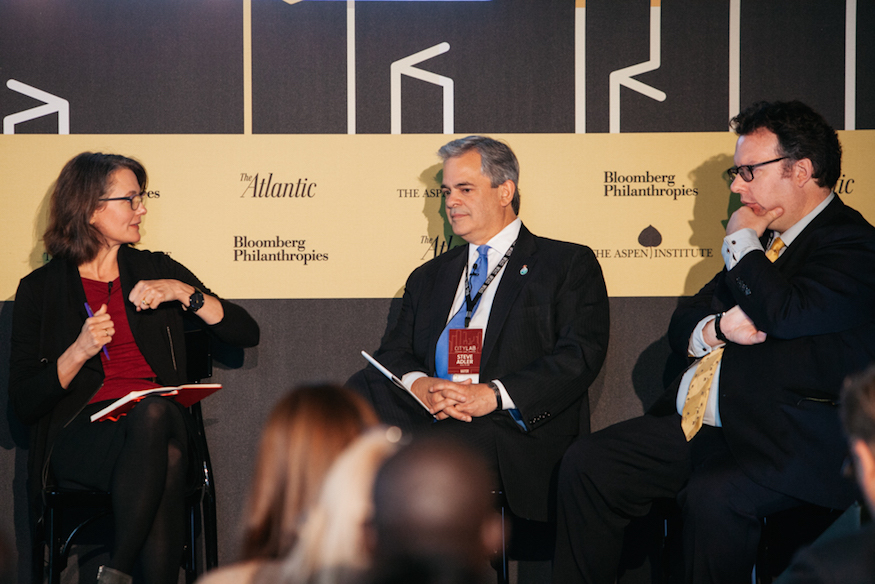This week saw one of the largest gatherings of city mayors from around the world take place in London. Organised by The Atlantic, Bloomberg Philanthropies, and Aspen Institute, CityLab aimed to tackle the big issues — the future of work, global street design, climate change, affordable housing, community policing, public health. We thought it'd be a good chance to see what London can learn from its counterparts.
What Can Other Cities Teach London?



"So many cities face the same challenges, it's really useful to hear from an international perspective how each other is tackling those issues," Steven Adler, mayor of Austin, Texas, tells Londonist.
London has much in common with Austin. Adler says the self-styled 'live music capital of the world' is growing 30% faster than even the second-fastest growing metropolitan area in the USA — and has been for the past four years. As a result of this success, it's dealing with the pricing-out of those on low incomes, transportation issues, affordability, disparity of wealth — all similar themes on this side of the pond.
Later, at the conference, president of the Lincoln institute of Land Policy, George 'Mac' McCarthy, tells the gathered mayors — from as far away as Accra, Bangkok, Christchurch and Los Angeles — that "housing affordability is less a technical challenge, and more of a moral challenge". "It's more about political will than anything else," he explains.
"We need to think very differently about what we need to do to make cities accessible to the people who live in them. It's not impossible to consider housing people from all backgrounds, IF we commit to doing it."
Cities may be facing similar challenges and seeking to collaborate to find solutions, but they're also competing with each other on a global scale. It's a cliché to say British people are less inclined to shout about their successes, yet — although Boris Johnson does a good job of gallivanting around the world — London seems understated in singing its own praises compared with other cities.
Katherine Oliver is a former commissioner of media and entertainment at New York City, where her role was to help diversify the city's economy into the media and tech sectors. Now at Bloomberg Associates heading up the media and technology department, she tells us one initiative she introduced to New York was Made In NY — which as well as providing marketing incentives and tax credits, gave many entrepreneurs and makers a sense of civic pride in their creations.
"We were faced with the challenge of investors looking to Silicon Valley, and no-one was talking about the New York start-up communities — our approach was grassroots: the Made in NY brand. I can't emphasise enough the importance of the marketing campaign. It created a community here and then other people started paying attention." She suggests London should shout about its tech achievements more.
Digital leader
One way London could do this is by learning from another New York City pioneering initiative: the appointment of a chief digital officer — something which Rio de Janeiro has adopted, appointing Pedro Peracio in 2011. He tells Londonist: "We were looking for ways for the city to interact with the citizens and how digital and tech can help government act more quickly and to have better solutions for the city and its residents.
"The mayor has a policy of 'digitocracy' — he understands that in ancient Greek times, people went to the public spaces to have their say; today, people turn to social media — the digital public spaces. We believe this new technology helps us understand what people want and we can respond more quickly."
Rio's city hall often communicates with residents through social media, canvassing opinion, or seeking input on traffic. For example, it has a partnership with community-based traffic app, Waze — aiming to not only use residents' real-time updates on traffic, but also to tell residents of planned works through sharing this data with the app users.
Could this work in London? The rise and rise of online petitions could indicate there's an appetite for closer and more immediate communication with politicians.
What else could London learn from other cities? Let us know in the comments below.
If you want to watch some of the sessions from CityLab 2015, they're available on YouTube:
Last Updated 21 October 2015




